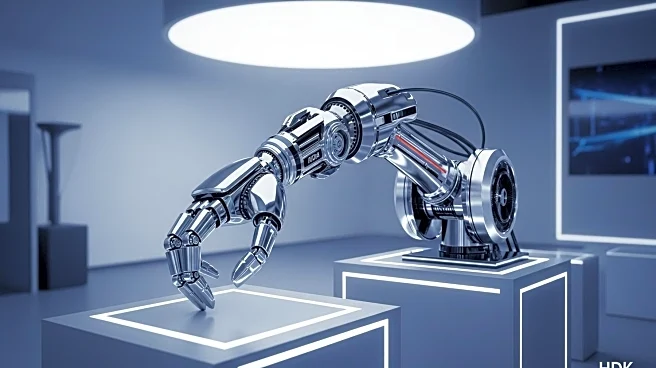What is the story about?
What's Happening?
ABB has decided to sell its robotics division to SoftBank for $5.4 billion, a move that raises questions about its strategy to exit a sector expected to grow significantly. Previously, ABB considered spinning off the division as a standalone business but opted for a direct sale. This decision allows ABB to focus on its more profitable electrification and automation units, but it also means relinquishing a position in a market with substantial long-term potential. Robotics adoption is still in its early stages in many large economies, and ABB's exit could mean missing out on future expansion opportunities.
Why It's Important?
The sale of ABB's robotics division is significant as it reflects a strategic shift in focus towards more profitable areas like electrification and automation. However, it also highlights the potential risks of exiting a market poised for growth. Robotics is increasingly central to various industries, including manufacturing, logistics, and healthcare, which are also key areas for ABB's core products. Competitors have successfully integrated robotics with their operations, raising questions about ABB's decision. The move could impact ABB's long-term growth prospects, especially as robotics continues to expand globally.
What's Next?
SoftBank's acquisition of ABB's robotics division could lead to new developments in the robotics sector. SoftBank has a mixed record in robotics, and its future plans for the division remain uncertain. There is potential for SoftBank to sell the division again, possibly to other major players in the robotics industry. The global robotics market is still in its early stages of expansion, and ABB's decision to exit could be reassessed based on how quickly and widely automation spreads in the coming years.
Beyond the Headlines
ABB's decision to sell its robotics division may reflect broader industry trends, such as the commoditization of industrial robots. The robotics sector could evolve similarly to personal computers, becoming essential but low-margin products. Alternatively, robotics could follow the trajectory of smartphones, becoming increasingly sophisticated and indispensable across various sectors. ABB's choice to prioritize immediate financial returns over uncertain long-term growth highlights the challenges of balancing short-term profitability with long-term strategic positioning.


















